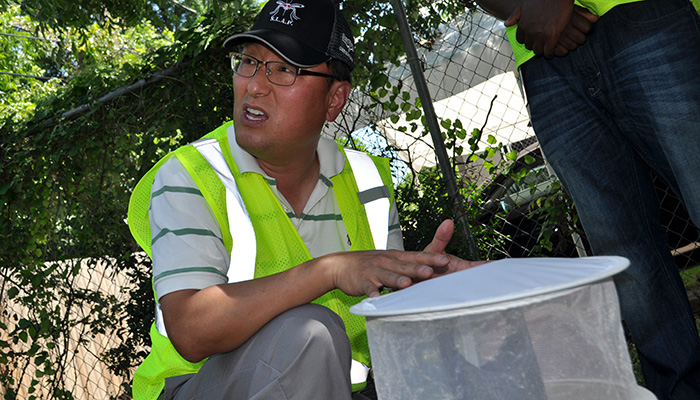Zika virus would require different approach than West Nile
If the mosquito-borne Zika virus were to establish itself in North Texas, the mosquitoes capable of spreading the topical disease would pose challenges to current surveillance methods, a UNT Health Science Center epidemiologist said.
The virus, which may cause birth defects in babies, is spreading across parts of Latin America and the Caribbean. About 20 imported cases have been reported in the United States, meaning they were diagnosed in people who recently traveled abroad.
Federal health officials have urged U.S. doctors to test newborns who show signs of the virus infection. The birth defect can lead to babies with small heads and abnormal brain development.
Joon Lee, PhD, Associate Professor of Environmental and Occupational Health, said that if the virus were to establish itself in the U.S., Florida and South Texas most likely would be the regions impacted first because of proximity to the Caribbean and Mexico.
However, the mosquito that carries and transmits the Zika virus, the Aedes aegypti, is found in Dallas-Fort Worth, Dr. Lee said. If the virus were established here, public health officials could not rely on the same surveillance and control prevention efforts they use against West Nile virus.
Dr. Lee and a team of UNTHSC School of Public Health graduate students partner with the city of Fort Worth in the summer to collect and analyze mosquitoes caught in traps for West Nile at different locations. Mosquitoes that carry West Nile virus reliably are found near puddles or other standing water.
“Mosquitoes that carry Zika virus do not require a visible amount of water for breeding and are much harder to trap because you don’t know where you will find them,” Dr. Lee said. “That also means that clearing standing water away your home also isn’t as effective at preventing Zika as it is West Nile.”
Above-average winter temperatures could lead to a larger mosquito population this spring and summer, Dr. Lee said. Public health officials should closely monitor new cases of Zika virus and identify new ways to strengthen our public health system so it can effectively monitor and respond to a potential Zika outbreak.
“That includes educating people traveling to South America or the Caribbean, and making sure doctors are prepared to diagnose anyone who brings this virus back,” Dr. Lee said.







Social media